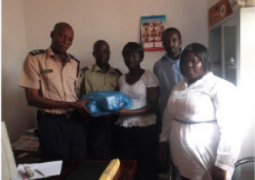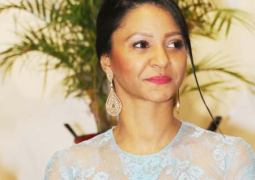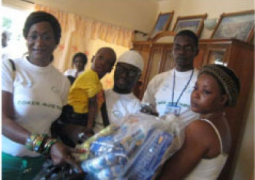(Tuesday, 23rd November 2010 issue)
This piece is a continuation of the publications about the tasks left behind by the abrupt departure of the erstwhile PPP regime. The one for the APRC has just begun. For the problems left behind by the PPP regime have all been inherited by the APRC government.
The tasks include the failure by the PPP regime to tackle the immigration problems, considered the root causes of the country’s economic problems. For the country appears to be free for all, no strict border control, giving opportunities to foreigners to descend here in numbers by the day. And these are not political migrants. They are economic migrants. And the whole world even the richest in the West are complaining about the big number of economic migrants it their countries and are considering ways of reducing these big number. The recent figures being bandied around of Senegalese migrants legal or illegal here in this country was three hundred thousand (300, 000)/five hundred thousand (500, 000).
The number of Guineans so numerous that no particular figures can be quoted. So also is the figure for the Mauritanians and the Nigerians. All coming from countries, the size of whose economies are over hundred times that of The Gambia. Compare these figures with the IMF report that there are only 65, 000 Gambians in the Diaspora.
Surprisingly, these foreigners, most of them, especially those from Senegal, Mauritania, Guinea Conakry have no form of formal western education, some of whom in particular the Guineans and Mauritanians have not come into this country with any form of skills, neither with a dime in their pockets. They avoided agricultural farming with its concomitant of hot burning sun and the cruel and persistent downpour of the heavy rains adding to the demand of intensive labour and energy and the risk of failure.
They then look for a soft spot in the exploitation of the economy of the country. And that turn-out to be trading and commerce. These migrants, almost all illiterates in the 3Rs (Reading, Writing and Arithmetic). They managed to ingratiate themselves with corrupt bank officials who conspired with them to siphon the country’s foreign exchange, at the time, scarce and in great demand. And the foreigners embedded themselves in the wholesale and Retail consumer goods business, and they quickly enrich themselves, dominating the commerce and trade aspect of the economy and elbowed out the indigenous Gambians in particular the Wollof and Mandinka who have a culture of trading and commerce as their livelihood. More surprising is this is the only country where illiterates from different parts of the world converge without having had prior consultation and a plan to converge in another country, arrived here and seized the economy without noise being raised and without firing a shot and succeeded only by the help of corrupt officials leaving their Gambian kits and kin businessmen in the doldrums and in strait dire.
These migrant menace and its consequences have been observed by all in particular the president himself. He in his countrywide tour rattled about the country’s socio-economic, cultural and political problems citing foreign dominations of the commerce, trade and the economy, over exploitation of marine products/forest resources. He also cited youth lethargy, the lack of artisan skills and the poor attainment of the rudiments of Arithmetic, Reading and Writing.
President Jammeh decried the situation and called for immediate resolution of the problem. That is, for Gambians to take over their country’s economy and artisan trade. This stand of the president was well received and applauded, raising expectations that all will soon be alright with the Gambian businessmen who until now is tantalising, wondering what time will they be rescued.
This tour coincided with the 15th anniversary of his seizure of the government and his ascension to political power. This is no less a person than Lieutenant Yahya Jammeh, as he then was, and now His Excellency Professor Dr. Sheikh Yahya AJJ Jammeh, Commander in Chief of the Armed Forces followed by more awards. The recent awards locally composed include Baabili Mansa, Baanyori Mansa.
Two titles accorded to him in recognition of the construction by his government of two bridges – Kerewan/Janjanbureh and last and not the least the Roll Back of the sea water that had threatened for years to submerge Banjul and aggressively moved to cut into two to separate capital city of Banjul with its only land outlet to the rest of the country, and engineering fit applauded by all Gambians. For Kerewan and Janjanbureh and Banjul had been of concern to all Gambians, erstwhile colonial government and its immediate successor. But none had sought the means and the courage to face the work. The maximum effort carried out by the colonial government and its successor was the installation of palm rhuns to reduce the wave and lash on the beach of the water wave. President Jammeh took the bull by the horn and tackled all three jobs and in succession making a success of all. Like the boy gate keeper who said: “Master! Master! I have done what Napoleon cannot do. I have turned back the Duke if Wellington.” Yahya too in a grandstanded style in the height of his achievement is able to face David Cameroon and Sir Dawda Jawara and say: “I have done what your government cannot do.”
In the fit of joy, president Jammeh unleashed a political storm the like of which had never been seen in this country, mauling off more than half his cabinet, creating the new ministry of economic planning, believed to be his weapon in the fight of the problem of foreign domination of the economy he himself had identified. As a replacement of the sacked ministers, a new team of personnel was within a short time put together confirming his own off-repeated assertion that he had 1.5m Gambians to draw from in picking individuals for appointment to public offices. He is right for in this country, everyone able to read and write however low even if in a good rewarding private job, usually have their eyes elsewhere, angling for a political job. This has made replacement of fired personnel very easy. The shake-up was not confined to the political realm. The president waded through the calm waters of the civil service and gave marching orders to some; some others were translated to some other jobs. Now with new head of the civil service and a new cabinet in place, the speed and thoroughness with which all these activities took place caused anxiety among the masses who had thought hell would get loose saying ‘Laa!’ whilst covering their mouth with their hand. The activity divided society whilst the sacked ministers were moaning, wailing the newly appointed ones were celebrating and partying with their supporters. He, we believe whilst selecting his cabinet ministers juggled here and there to put together a team of men to tackle the financial and economic problem, in particular the problem of foreign domination of our economy. For this exercise, he appointed Hon. Yusupha Kah, Mam Albury Njie, Momodou Foon, Hon. Abdou Kolley, Dr. Njogu Bah, who serves alternately as head of the civil service and secretary general in the office of the president, minister of Works and Construction. His appointment as minister of Works, was highly applauded for he is considered clean and trusted. The indulgence of the reader is sought to allow us to digress a bit to talk about Dr. Njogu Bah. He enjoys a position that is unique, never enjoyed by his predecessors, not even the icon Eric Christensen and Jabez Langeley both of blessed memory. For as far we can remember, these never mounted a public platform whilst president Jawara is sitting and on a list to make a speech.
Whereas Dr Njogu Bah recently departed from that position at the Janjanbureh Bridge inauguration. The speech is remembered by me, for its length and the Wollof dialect and accent and not for its substance and standard Gambian Wollof dialect. In my assessment, it does not resemble the Wollof of Garba Juhumpa, Mbye Saho, Pierre Njie, M E Jallow and Araba Bah, all of blessed memory. These, however elated in speaking in public never deviated from the Banjul Banjul Wollof Dialect. The speech of Dr. Njogu Bah is far far away in dialect and accent from those of the well known erstwhile Banjul Orators. It sounds like one made by erstwhile Senegalese politicians of the Leopold Senghore days.
Coming back to our topic, the team of economists and financial engineers set up by the president consisted of Yusupha Kah, he had a long stint under Alieu Ngum as deputy in the ministry of Finance. He later stepped in the shoes of his boss as Permanent Secretary. He then moved to the ministry of Trade, Industry and Employment as permanent secretary. And then minister of that ministry. He was in my view yet to make an impact in that ministry when he was appointed to the new ministry of Economic Planning and Industrial Development. He was the minister at the time when the president conveyed a three-day conference at Kanilai. Reports that emerged and read by Mambury Njie who just arrived in the country from abroad, perhaps after a course and looking fresh and robust and impressive did not sound as a panacea for the exploration and exploitation of the economy of this country.
Njie was quickly appointed minister taking over from Yusupha Kah who went back to the ministry of Trade and Employment. Hon. Foon was appointed minister of Finance replacing Hon. Abdou Kolley. The appointment of Foon gave the public the feeling that the country had come to the end to its financial problem. The country will never face mal-financial administration for he was considered a capable man to solve all our financial problems. Foon was in this office barely three months when he was sacked, but not before public impression that he had discovered some funny things.
Abdou Kolley was returned to the Finance Ministry. He proved himself a tough man, able to surprise anyone that underrates him. He, it is remembered gave a fitting reply to the hoteliers who visited the president to extract more tax concession. Kolley’s reply turn-out to be the talk of the town, tough, robust and professional, making the public to believe that he should continue to keep that office for a long time. To remind the reader, Yusupha Kah, Bamba Saho of Central Bank, Mambury Njie and Abdou Kolley constitute the financial and economic team that now flanks the president. Mambury Njie as the minister of Economic Planning for several months, the Gambian business community are tantalising expecting the ministry to put a smile on their face. Infact people are wondering why it has taken so long for action to emerge given the fact that the president has done more than half the work by going round the country and coming in contact with the brutal truth of the economy in foreign hands. And MoEPID is not showing any sign of action. Are we right in asking whether MoEPID and the presidency are on the same wave length in their perception of the foreign domination of the economy?
The team put together under the leadership of Dr. Jabez Langeley by Sir Dawda Jawara was quick in producing results of MoEPID of 1975. We don’t know what is holding back the release of information relating to the solution to the problem of the economy and the measures to tackle the problem of Gambian businessmen and the training of skilled workers.
Perhaps president Jammeh will not mind the names of certain personnel being mentioned here for his knowledge and the wider public. These personnel namely, Abdou Njie, Amadou Taal, and others are alive, well, and are the people who worked under Jabez Langeley to make the 1975 MoEPID a resounding success. They too may not mind being consulted in the administration, management and the work of MoEPID.
This is part one of a series of articles that will follow about the exploration, exploitation and utilization and under-utilisation of the resources of The Gambia.
Read Other Articles In Article (Archive)




